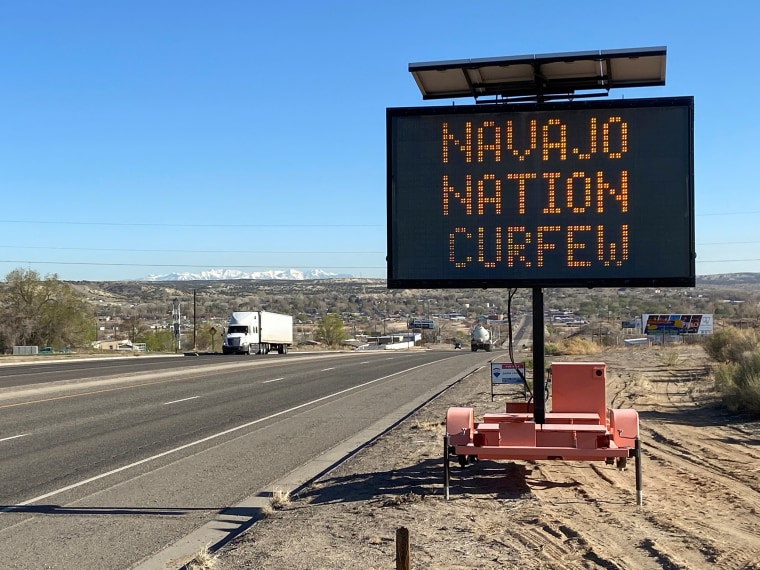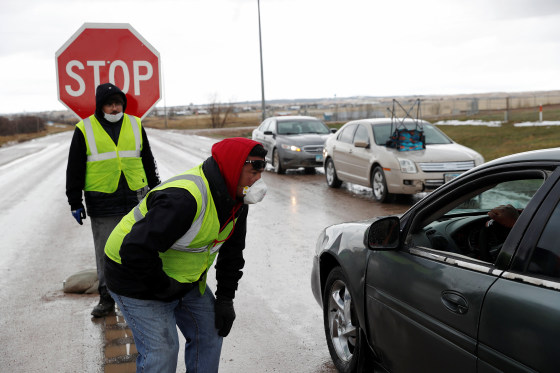Native Americans have survived a lot over the centuries: a vicious genocide, germ warfare, enslavement, starvation, massacres, forced relocations, boarding schools and even evil priests, presidents and Army generals, all in the name of imperialism and wretched white male “progress.” Yet, we’re still here.
But the COVID-19 pandemic is an entirely different beast all together. It doesn’t hate Indians like President Andrew Jackson and Gen. George Armstrong Custer so infamously did; it doesn’t seek to kill Natives because we live on land it desperately desires. No, this hideous thing kills indiscriminately, like a wildfire.
And now, the coronavirus has found its way into Indian Country.
In places like the Navajo Nation and other reservations across the United States, however, there is no running water to wash your hands, and even if there is access to health care, it is subpar. Traveling to a grocery store then, if there’s one nearby, has become a veritable deathtrap for our elders — the teachers and keepers of our languages, ceremonies, stories and all manner of powerful wisdom.
Sadly, our elders are already far and few between. Natives are the smallest racial minority in our ancestral land, so any loss is significant. As such, when we lose an elder, we’ve truly been robbed of more than just a person — we’ve lost centuries of pre-white invasion knowledge and narrative. And although we Natives are groomed to be survivors (you’d have to be, to still be here), COVID-19 threatens Indian Country in a way rarely talked about.
There are no Navajo elders living, teaching or leading traditional ceremonies in places like Paris or Prague. You can’t zip to Ireland and find Lakota elders sitting around the table there, passing massive wisdom onto the next generation of Lakotas. This continent — this land, our ancestral home — is it; this is the only place you’ll find Navajo and Lakota and Ojibwe and Osage and Oneida and more, living and praying, whipping up centuries-old recipes and singing old songs, among our people on these, our homelands.
That’s why, right now, signs are posted at entryways into some reservations reading “DO NOT ENTER.” That’s even why city-dwelling Natives have been asked to stay put in places like Denver and Los Angeles — to avoid the rez all together. We have, in many cases, been asked to stay living among others, in the cities, for the safety and well being of our community — and particularly our elders.

But even as we keep our distance, the sad fact that many reservations don’t even have electricity, means that FaceTime and Zoom aren’t always an option to remain connected to our loved ones. While white folks can have social distancing happy hour, people on the reservation are saving their phone battery’s charge just in case they need to make an emergency call to an EMT.
In Indian Country, the youth and younger Natives are taking things much more seriously than some people outside of it; we understand exactly what a deadly disease can do to a population with no innate immunity. We wear masks and keep our distance. We’re spiritual people, but we also listen to the science and the facts and honor our elders by doing what we can to preserve their time with us — something some don’t seem quite as eager to do as they protest for the right to infect others. We Natives long for the days when we can get back to pow wows, where elders will joke with an another in the old, ancient tongues. Meanwhile, other people seemingly long for the days when tattoo parlors are reopened so they can selfishly honor death with fresh ink.
Natives are good with isolation. We stay in and bead and bake (and Netflix and chill — there will probably be a lot of Native babies that come out of this). We know doom, and we know gloom, but we also know things will get better — maybe not immediately, but Natives are also a patient people. Our grandmothers and grandfathers teach us that hope is a good and necessary thing.
Our ancestors had hope – even during enslavement, starvation, murders, and massacres. They had fight in them, too — and now, so do we, because of the lessons and knowledge they still impart to us. They took care of us and now we will take care of them, because that’s the way it has been since long before the first “pale face” stumbled our way. We look out for our elders, even if that means staying away from them, our beloved wisdom keepers.
Until the time when it is again safe to sit at their feet and learn from their wisdom, we will cover our faces, stay in our homes, and watch out for people who don’t respect their own elders’ lives. We’re battling two diseases today: COVID-19 and arrogance. There will someday, hopefully, be a vaccine for one, but there’s no cure for the other.


